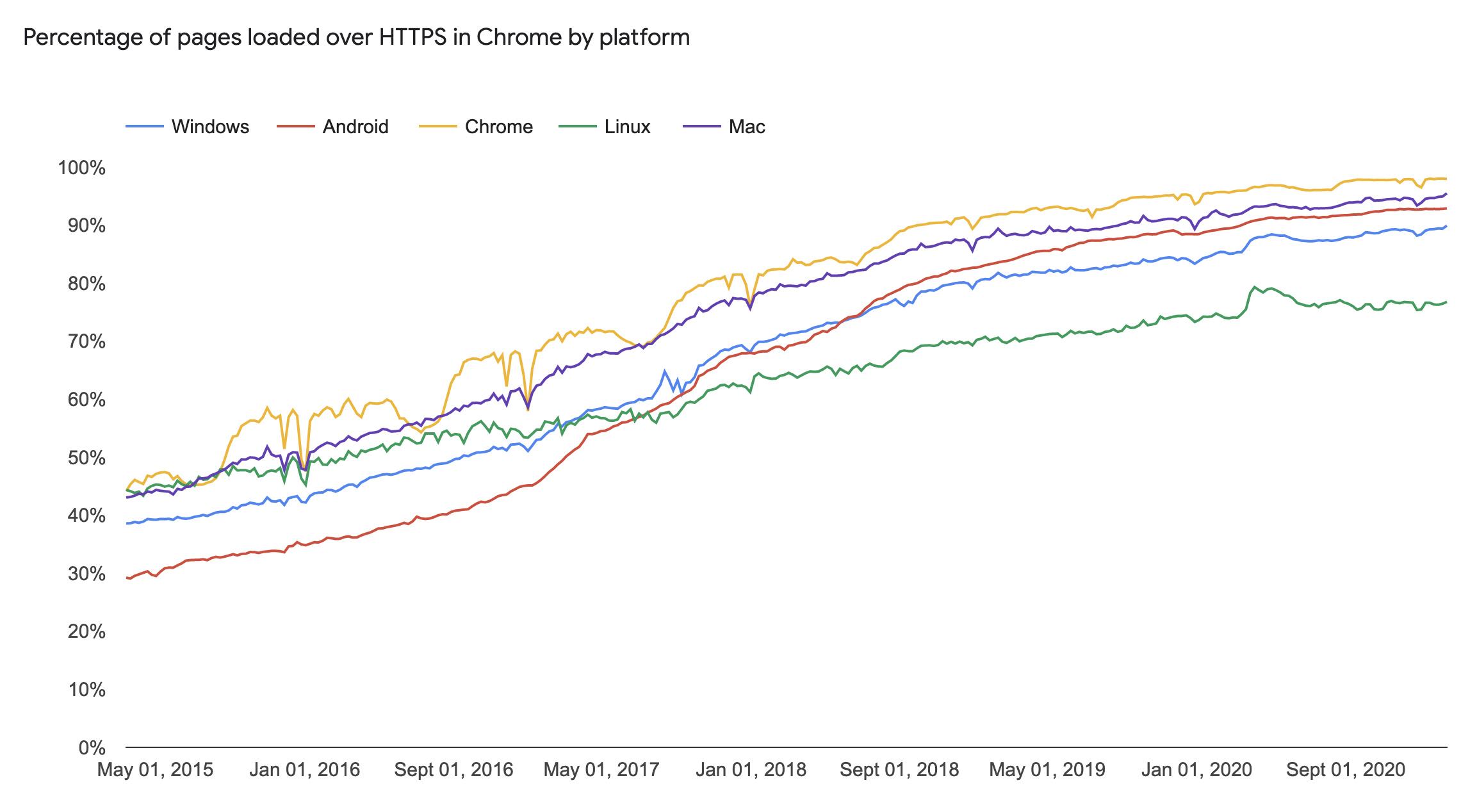4th March 2021
Core Web Vitals – Google’s Biggest Update Yet?

In May 2020 Google announced a change to its ranking algorithm.
The announcement gave no precise dates but said implementation would include a six month notice period, this was a sign the changes were going to be significant. In 2014 a similar announcement was made that https would be a ranking signal and the effect was stunning:

In November 2020 came the announcement that the changes would be implemented in May 2021.
What are the changes?
Has something like this ever happened to you when using a website?
Frustrating isn’t it? Google wants this to stop happening so they are bringing in changes to their ranking algorithm know as Core Web Vitals.
What are Core Web Vitals?
It’s worth starting with the original announcement by Google in May 2020 to help understand what they are trying to achieve.
Core Web Vitals…measure dimensions of web usability such as load time, interactivity, and the stability of content as it loads.
You are already familiar with the more obvious aspects even if you don’t know the technical terms for them: How long a page takes to load, does the page work well on a mobile phone? When a link or button is clicked, does the website behave as a user would expect it to?
Here Google are looking at some less obvious aspects which they have grouped together under the label of “Core Web Vitals”
Core Web Vitals is made up of three components:
Largest Contentful Paint: How long does the biggest part of a webpage take to load? In most cases this will be a banner image or a carousel of banners.
First Input Delay: How long does a webpage take before you can interact with it?
Cumulative Layout Shift: Once a webpage starts loading on your device, how much does it move around a) as its loading and b) as you scroll around a page?
In all cases, the lower the score the better. Google want websites to load quicker, and behave more predictably once they have loaded.
The scores aren’t accumulated, you can pass with all three components scraping a pass. Or you can fail with one component being slightly over the fail boundary.
Will this affect me?
It’s our opinion that site which only just “fail” will not result in your website being removed entirely from Google. This will be limited to the absolute worst offenders.
If you do absolutely nothing one of two things will most likely happen:
- Your rankings will drop below competitors who have a better score than you.
- Your rankings will increase slightly as competitors ahead of you have a poorer score.
It’s worth keeping the above graph in mind. When Google asks websites to change they usually do.
In our experience, most scores can be improved fairly easily.
Finally…
Remember at the core of this is Google looking after itself: frustrated and unhappy users are less likely to spend time online. Google domination of the search engine market (despite the efforts of competitors) means the less time users spend online = the less time users spend on Google = the less money Google makes.
Questions? Would you like us to run an audit on your website? Get in touch.


